Moral understanding Normal Worksheets for Ages 5-9
5 filtered results
-
From - To
Explore our engaging Moral Understanding Worksheets designed specifically for children aged 5-9! These interactive resources promote essential social skills and empathy, helping young learners understand the importance of kindness, sharing, and respecting others. Our worksheets include enjoyable scenarios and relatable situations to facilitate discussions about right and wrong behaviors. Perfect for classroom use or home learning, these resources will empower kids to think critically about their actions and develop strong moral values. Start fostering a sense of empathy and responsibility in your child today with our thoughtfully crafted worksheets that make learning about morals fun and accessible!
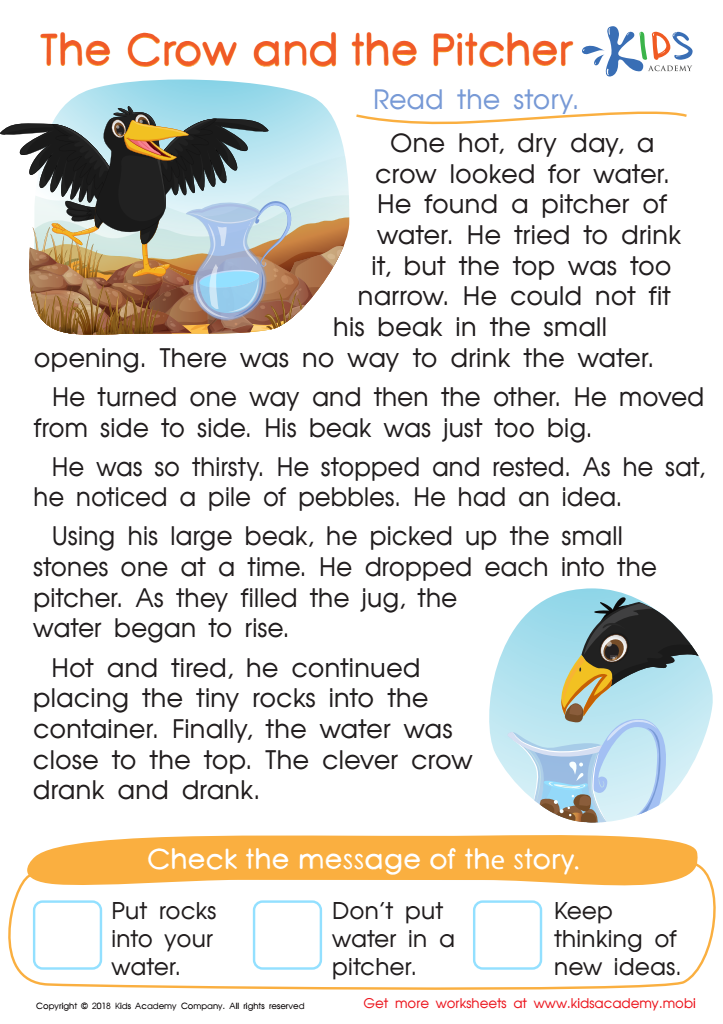

The Crow and the Pitcher Worksheet
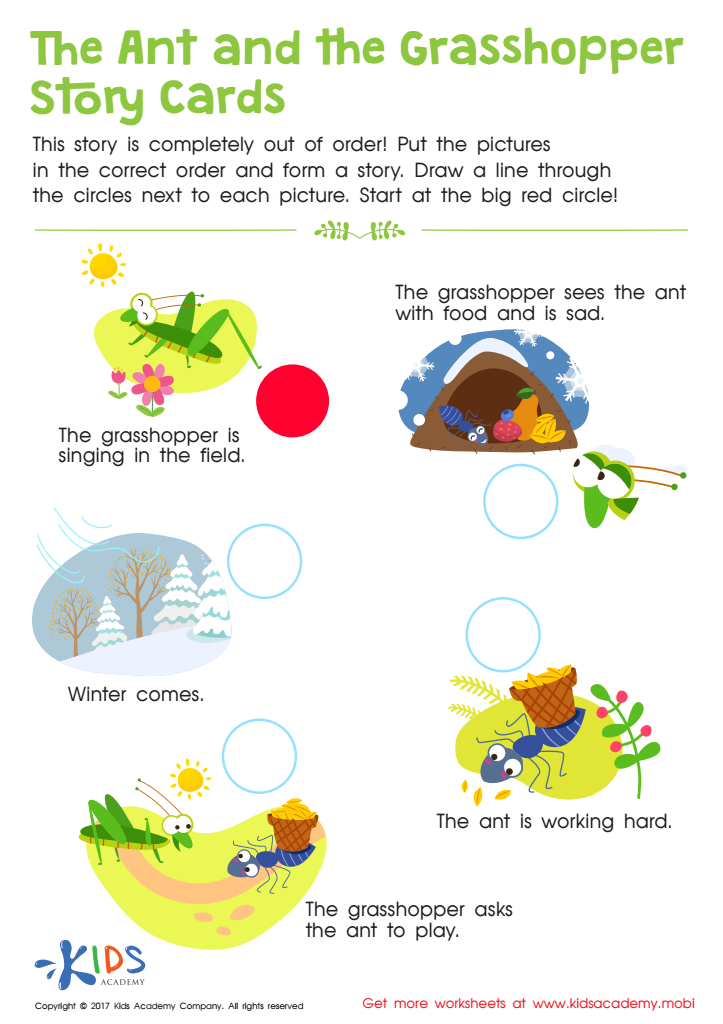

The Ant and The Grasshopper Worksheet
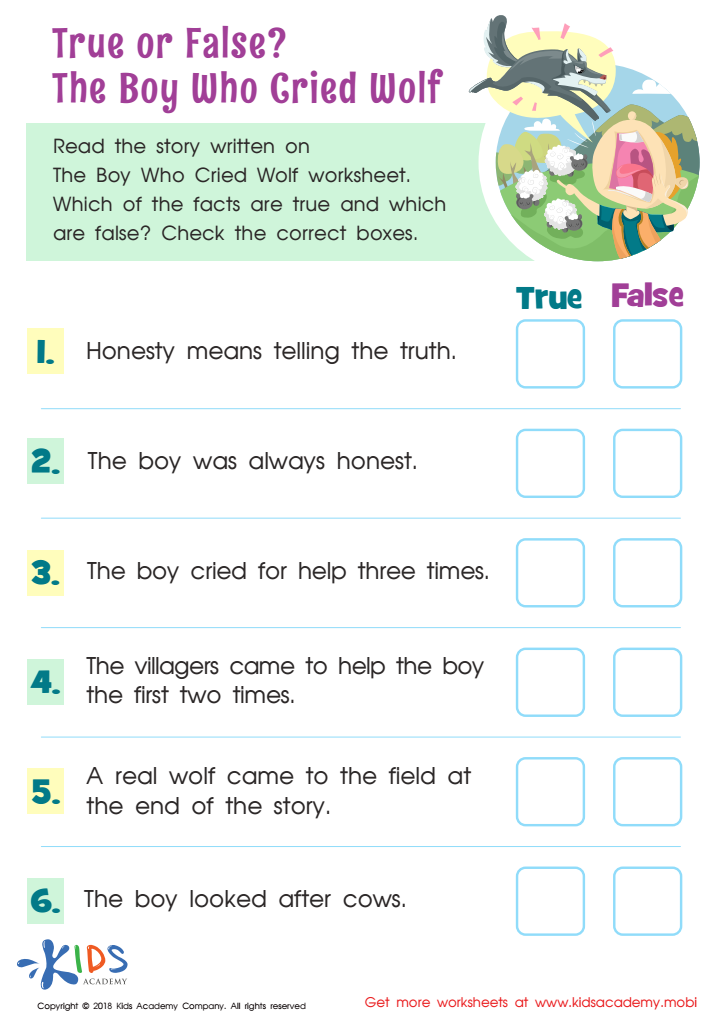

True or False? The Boy Who Cried Wolf Worksheet
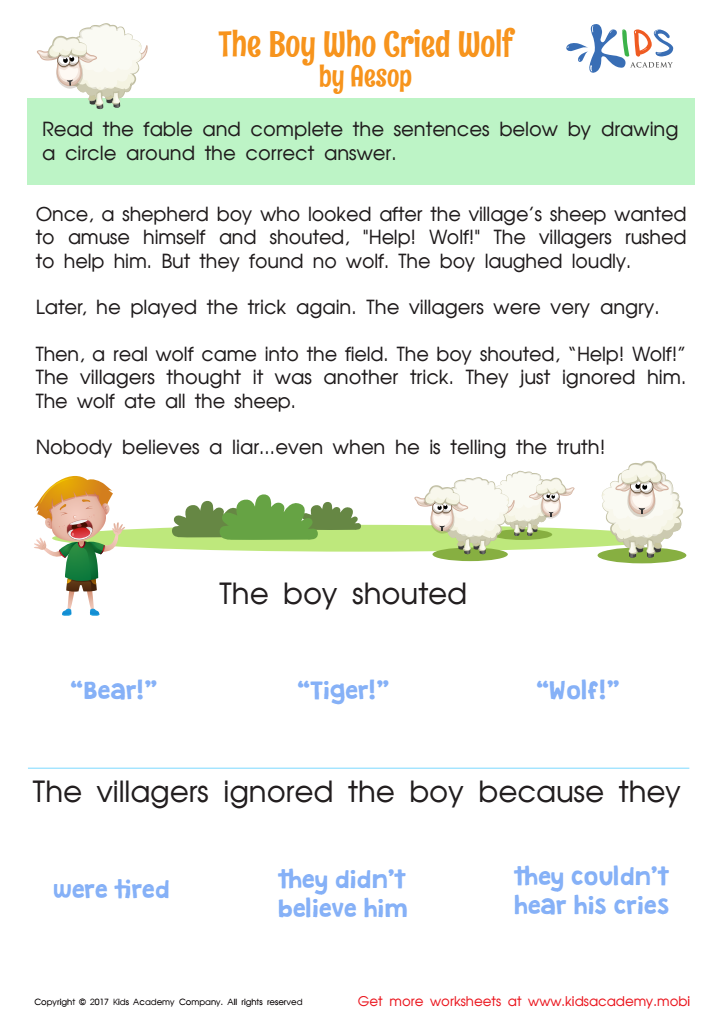

The Boy Who Cried Wolf Worksheet
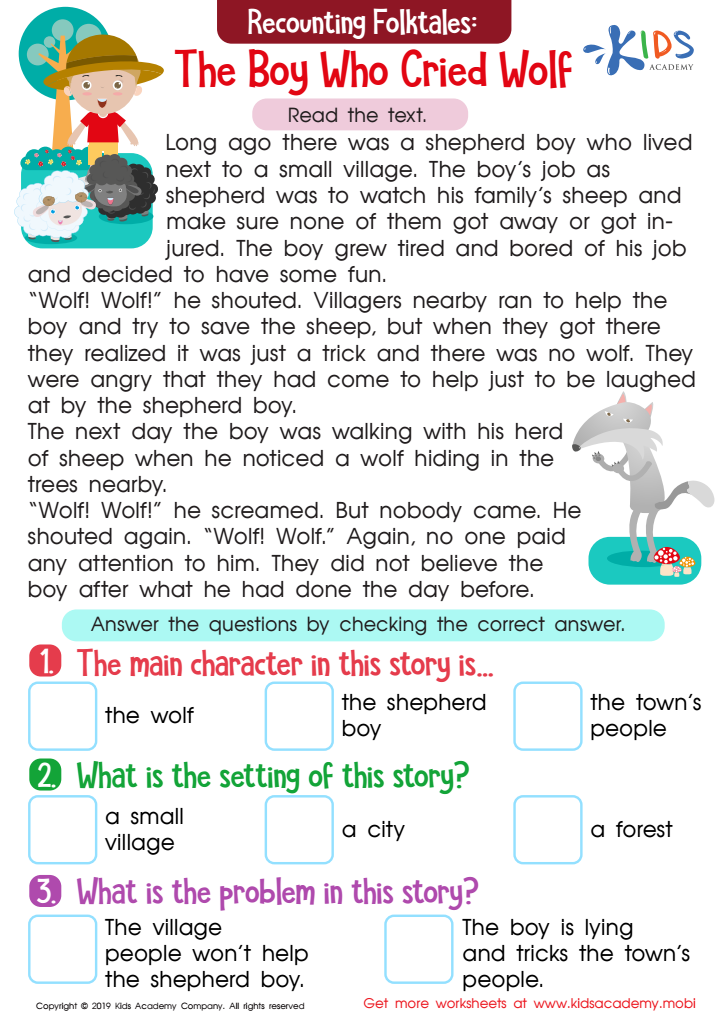

The Boy Who Cried Wolf Part 1 Worksheet
Moral understanding is crucial for children aged 5-9 as it lays the foundation for their character development and social interactions. At this age, children begin to learn about right and wrong, fairness, and empathy. By nurturing moral understanding, parents and teachers cultivate a sense of ethics that guides children in making decisions and navigating relationships.
Understanding moral concepts helps children develop empathy, allowing them to recognize and respect the feelings of others. This skill is essential for building strong friendships and creating a sense of community in classrooms and families alike. Furthermore, when children engage in discussions about morality, they learn critical thinking skills, enabling them to evaluate situations and understand consequences.
Encouraging moral understanding also promotes positive behavior. Children learn the importance of honesty, kindness, and responsibility, which can reduce bullying and conflict. It prepares them to face real-life challenges, encouraging them to stand up for what is right and advocate for themselves and others.
Ultimately, fostering moral understanding in young children supports their emotional and social development, encouraging them to grow into compassionate and responsible adults. It is a vital aspect of education and parenting that shapes not only individual lives but also the broader society.
 Assign to My Students
Assign to My Students




















